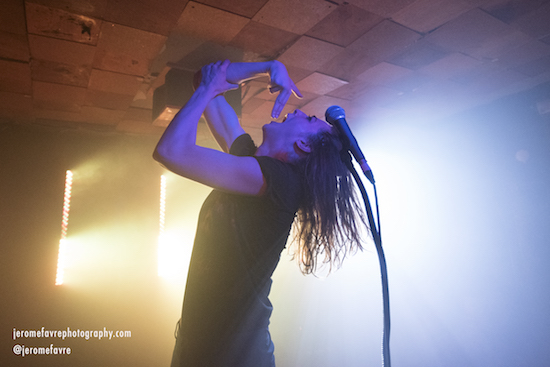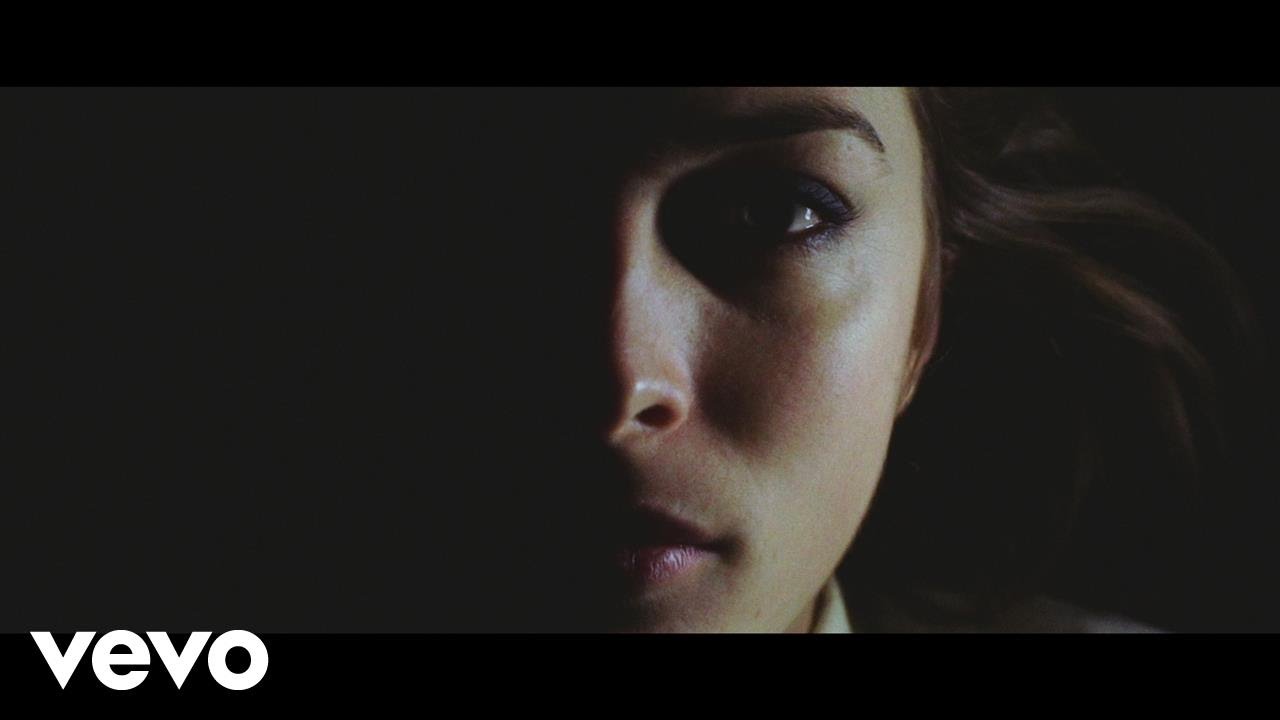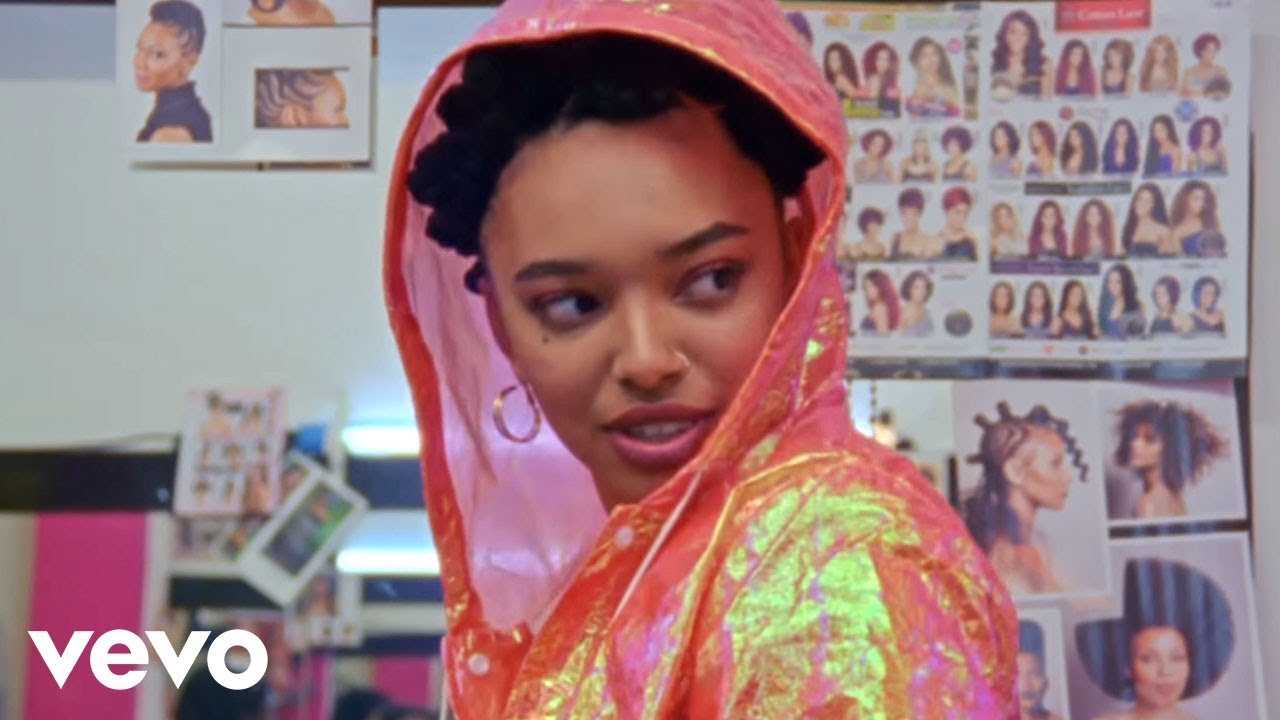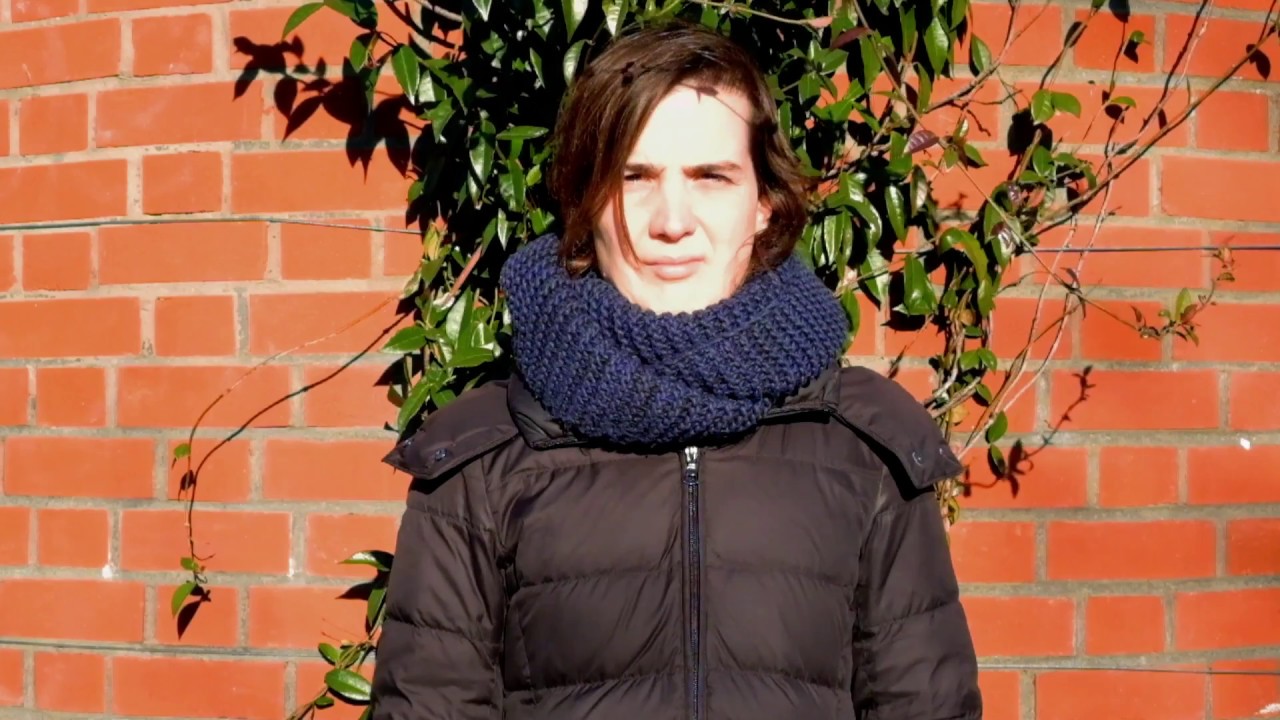N.B. This column was written in May, prior to the death of Pierre Henry and its late publication date, although unavoidable, was nothing to do with author David McKenna
Fishbach – Un Autre Que Moi EP
(Entreprise/A+LSO)
When Fishbach played a residency at the Air Libre venue throughout the Trans Musicales de Rennes festival in December, it was her first run of shows with a full band and billed as a ‘création’ i.e. a performance specially conceived for the occasion. And although it did initially look very much like a standard live show – a band on stage ploughing through the setlist – it became apparent that movements had been choreographed, and there was a sparse set that included a leather armchair and several venetian blinds hung across the back of the stage. These, along with the coils of smoke from a cigarette that Flora Fishbach consumed at one point while lying across the front of the stage, seemed to be there as co-ordinates or symbolic objects arrayed for a séance. But what was the destination, or what was being summoned?
The easy part is to say that Fishbach’s music harks back unironically to the 80s, particularly French variété/chanson and post punk pop from that period. It’s been widely noted, for example, that ‘Un Autre Que Moi’, the title track from this first international EP (and from an album that’s already been released in France) bears more than a passing resemblance to France Gall’s ‘Ella, Elle L’a’. She’s a retro artist in the truest sense in that the desire to revive certain sounds and moods from previous eras is both conscious and clearly stated: “The word variété is noble, it’s bold” she’s said in a French interview.
It must state that I’m an easy target here. Fishbach’s music hits me in an 80s-tinged area of my Francophilia, a hazy-bordered fantasy space that’s all the more seductive for relating to a France I never experienced directly (give or take a few family holidays when I was far too young to be exploring the nightlife – maybe a campsite disco at best), and which is therefore almost entirely composed of impressions from the music and cinema of the time. Fishbach songs could easily soundtrack both Sophie Marceau’s school disco in La Boum and the seedy Paris nightclubs of Polanski’s Frantic.
But then Fishbach was born in 1991 so she’s at a remove from these sources too, it’s just that the remove is temporal more than geographical. What’s being summoned is not the ghost of a lived past but a phantom projection: a French 80s of the mind. That’s not a particularly unusual move in itself – the same could be applied, though in relation to a different place and time, to a band like Foxygen. So why do I prefer Fishbach to Foxygen?
Aside from the Francophilia I do of course have retro soft-spots. I really don’t want to hear your reheated Stones riff but if you’ve got something a bit dark and 80s-synthy going on there’s a greater chance I’m going to tell the wannabe staunch modernist in me to take an early lunch. But I think I can carry the post-rationalisation a little further than that. The kind of music Fishbach uses as a vessel comes from a time when synths were taking over the job of ‘real’ instruments, and when lyrically expressing existential doubt, anxiety and a sense of alienation with regards to your own emotions and the world around you wasn’t uncommon. The open-ended question about what constitutes authenticity is already coded in. Fishbach’s committed shadow play resonates in this context, itself becoming the underlying drama.
I say committed because, as a performer, Fishbach goes way beyond just dipping her toe in these waters, and gives her all to transform herself into a convincingly tragic, or perhaps quixotic, heroine. She also has the skills as a songwriter and interprète to pull it off, and the deathly and deathless <a href="https://fishbach.bandcamp.com/track/mortel-version-ep” target="out"> ‘Mortel’, from her first EP on Entreprise, would have been an instant classic had it been released in any one of the past 35 years. She nearly rivals it here with the ballad ‘Y Crois-Tu’, which even reaches a little further back for inspiration; the muscular strumming and stacked vocals in the chorus recall no-one so much as Abba. The title translates as ‘Do You Believe It’ which, for all the forcefulness of the execution, returns us to the fragile essence of the project – the venetian blinds are drawn, the leather armchair is in position and the slender, dark-haired girl lights a cigarette. The séance is about to begin. Y crois-tu?
F.U.T.U.R.O.S.C.O.P.E – Utilisation Non Autorisée
(Kythibong)
&
France – S/T
(Almost Musique)
Two vital slabs of obsessive, compulsive minimalism and repetition from French trios.
F.U.T.U.R.O.S.C.O.P.E are currently trumpet player Antoine Serreau, bassist Julien Nicolaï and drummer Jean-Baptiste Geoffroy – the line-up has fluctuated in the past – and this is their first release on the Kythibong label, the only previous one appearing to be a tape on Monofonus Press. It’s a one-track-split-over-two-sides affair (like France, below) and feels like a relatively ‘composed’ piece, with key momentum shifts that the band must have at least broadly sign-posted. A single-note bass and drum groove and a drone sliding around the stereo picture are gradually augmented by extra layers of Serreau’s trumpet on ‘Utilsation Non Autorisé Part 1’, while ‘Part 2’ moves on to insistent hammering and looped wails. A predictably intense but satisfying climax is followed by a brief, almost funky coda.
I’ve made the case for France (the band) in this column before, and elaborating on that presents a unique challenge, since the band’s raison-d’être is the reiteration of not just the same musical elements (drums, bass and amplified hurdy gurdy) but the same chugging rhythm. The experiment in ‘sameness’ extends beyond the duration of one concert to every single live show and recording. But their one ‘song’ is also of course entirely different every time, with the band charting infinite microvariations within it.
France 16janv2015 Paris Olympic Café from NO MORE RETURN on Vimeo.
Other key elements, or restrictions, that the trio explore are duration and the acoustic properties of the spaces they play in. Seeing them at Liverpool Psych Fest last year compared to an aircraft hangar at Les Transmusicales in 2015, a shorter set and smaller space translated into an iteration that I might have jokingly referred to at the time as ‘poppy.’ This new release is a live recording from a La Souterraine event at Paris’s Olympic Café, a smaller venue still, and the sound is more thick-grained and blazingly immediate than the reverb-laced buoyancy of the cult Do Den Haag Church album. I hope they’ll be happy to continue in this vein for some time to come – I for one am far from sated and, although nothing quite substitutes for experiencing them in the moment, France makes for another vital recorded document.
Low Jack – An American Hero
(Modern Love)
Editions Gravats founder Phillippe Hallais’s second album on Modern Love chimes nicely – or disturbingly – with the recent epic O.J. documentary, taking its inspiration from ESPN documentaries about high-profile sports personalities. In these documentaries, however, the narrative is far more compressed, resulting in arcs that resemble each other, where the individuality of each athlete is erased. And in these cases there’s usually redemption somewhere down the line but one which, in Hallais’s view, becomes hollow through its repetition, nothing more than a narrative reflex.
Tracks have titles like ‘Theme (Trophies)’ and ‘Ready (Sacred)’, denoting phases or building blocks of this standard narrative. How the themes manifest musically, other than in the use of decayed, distorted and screwed takes on the wan synth textures so prevalent in the documentaries (so a fairly standard vaporwave-y approach) isn’t immediately clear but repeated listens reveal something of what Hallais is driving at. For example, one of the techniques over-used by those programmes is slow motion, the fixation on and dilation of the moment of triumph or tragic failure, and ‘Everything (Good)’ appears to home in on that, a glitching action sequence that slows to a crawl and becomes thick with sounds that could be the grotesquely distended groans of dozens of athletes as they strain for glory. It achieves a kind of grace by hyper-emphasising such moments to the point of gauzy abstraction, a brief hiatus in the inexorable progress of the hero’s story.
Las Aves – Die In Shanghai
(Cinq7/Wagram)
Las Aves is the rebirth of Toulouse pop-punk brats The Dodoz, who were signed to Nude for a brief moment in the late noughties. The good-natured gang mentality, the playground toughness, has remained but musically they’ve moved on to a more up-to-date if not bleeding-edge assemblage of modern R&B, synth pop and ‘indie’ rock. This, their debut album, was first out in France last year but has just had a full release here, at virtually the same time as brand-new single ‘Antistar’. The latter was produced by Timothy ‘Q’ Wiles, who has also worked with Factory Floor, and provides the band with more space and bass-weight than Dan Levy of The Dø’s accomplished but thinner-sounding work on the album.
In either case, there’s an easy appeal to Las Aves and singer Géraldine Baux’s Americanized French-accented voice that goes hand-in-hand with an almost ruthless deployment of wordless vocal hooks that join the dots between girl groups, rave and hip hop, plentiful wriggling ear-worms, verse-tension and chorus-release. Stand outs include the faux-oriental ornamentation of the title track, the strutting ‘N.E.M.’ and ‘Perfect Mess’, which demonstrates their knack for balancing just the right levels of sweet and sour to induce pop cravings.
EDH – SOS Spring
(Lentonia)
I received the tracks for SOS Spring before the French elections when it appeared Marine Le Pen might have a chance of being elected. Was the title a reference to this particularly fraught spring period? According to Emmanuelle De Héricourt – EDH – “It’s partly related to that, and partly a desire for things to bloom again.” Correspondingly, this new album is largely shorn of the gloom that weighed down her previous solo album Lava Club, with only ‘Polygale’ feeling like a hangover from that release.
What’s still very much in evidence is the technique of dressing new wave pop in all manner of clashing and oddly fitting threads. ‘Honey’ features one of those fiendish EDH melodies that won’t quit you for days and lush synth pads, but also a deliberately awkward, stumbling beat and what sounds like an aerosol can being shaken. But there’s more light and fresh air than before in SOS Spring to counterbalance the minor-key refrains and bass undertow. ‘Summer 16’ is a particularly pleasant surprise – a beautifully indistinct synth-pop pastoral, heat-haze barely pierced by recorders (I think) and the calls of robot wood pigeons. It’s blooming marvellous.
KillASon – STW1 EP
(Supanova)
Releasing his first EP on his own label after a mini-album on Fin De Siècle, KillASon continues to distinguish himself not only by rapping in English (I’m not claiming this as a virtue in itself, incidentally, although it is impressive and largely convincing) but also through his stylistic range and force of character. KillASon is a born entertainer who recently lit up The Great Escape festival, and live engagement – unsurprisingly given he was a dancer before starting to produce his own music – is the strongest weapon in his arsenal but ‘STW1’ is still ripe with fabulous potential. Between the bookends of the Atlanta-influenced ‘Wrong’ and the catchy Neptunes-style bounce of ‘Strange The World’, there’s space for greater experimentation on ‘Number 41’, and while the complaint on ‘Abtm’ about an acquaintance who’s “all about the fame and the money and the women” may not be that striking in itself, the track’s bleached-out dub drift certainly is. Meanwhile, dancehall tune ‘Illumina’ combines a haunting chorus with affecting images of his mother and manager (and contemporary dancer) Julie Dossavi’s youthful self-determination.
Clementine March – Les Etoiles À Ma Porte
(Freaksville)
March has previously played in Water Babies, been a member of Julien Gasc’s live band and is currently in Snapped Ankles but this is her first time stepping out under own name. Originally intended as a self-released EP until it was picked up by Belgian label Freaksville, Les Etoiles À Ma Porte is four tracks of sharp and shambling indie pop that sees March change language, voice and tempo as the mood takes her – the move from a higher register in French to a lower, earthier tone in Portuguese as the title track breaks into a gallop is particularly notable. She also seems to take pleasure in ruffling sections that could be too placidly pretty with odd eruptions of noise, as with the chorus of backward vocals the wafts in halfway through the hungover stumble of ‘Quiet Bee’. Les Etoiles À Ma Porte charms through being broadly approachable but unafraid of a little good-natured needling.
Felicia Atkinson – ‘Vermillions’ (Shelter Press) Album reviewed <a href=” http://thequietus.com/articles/22434-felicia-atkinson-hand-in-hand-album-review” target=”out”> here
Rockfort Quietus Mix 8 – Summer 2017 Tracklist
KillASon – ‘ABTM’ (Supanova)
C x A x B – ‘Uroacid – Original Mix’ (Tripalium Records)
Détente – ‘Apply Pressure’ (Permalnk)
EDH – ‘Summer 16’ (Lentonia)
Low Jack – ‘Skin (Hit)’ (Modern Love)
Powerdove – ‘War Shapes’ (Murailles Music)
Rupture – ‘Alice Aux Miroirs’ (Sommor)
Jac Berrocal, David Fenech & Vincent Epplay – ‘Why’ (Blackest Ever Black)
MΩment – ‘Green Smoke’ (Hylé Tapes)
Camille – ‘Sous Le Sable’ (Because)
Fishbach – ‘Invisible Désintegration de l’Univers’ (Entreprise/A+LSO)
Las Aves – ‘Die In Shanghai’ (Cinq7/Wagram)
Clementine March – ‘Les Etoiles À Ma Porte’ (Freaksville)
Orval Carlos Sibelius – ‘Dopamine’ (Born Bad)







